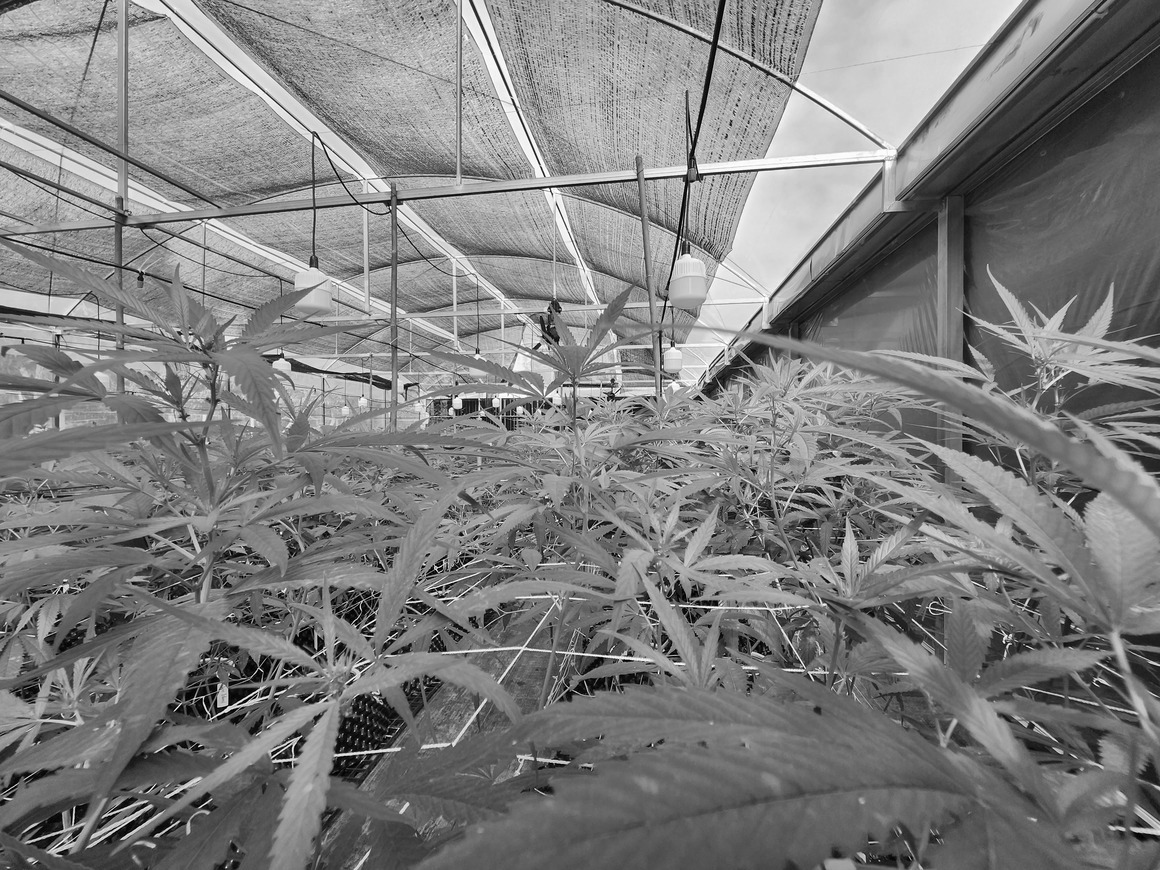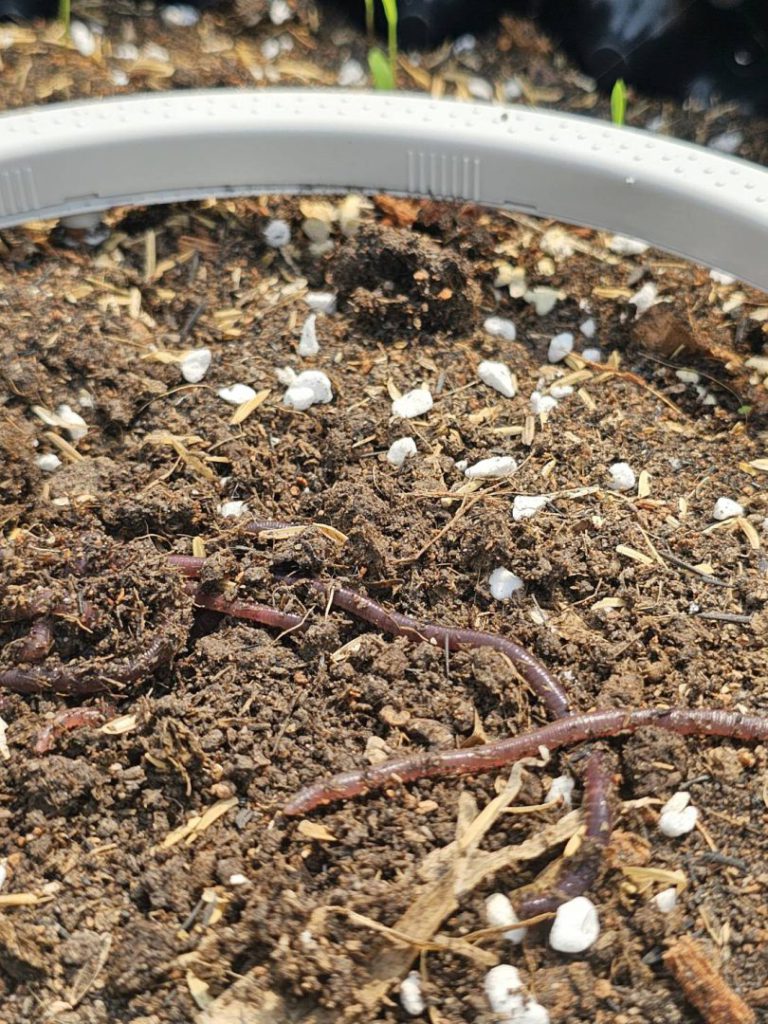พืชผสมควบคุม
การเกษตรและการดำรงชีวิตอย่างยั่งยืน

การเกษตรและการดำรงชีวิตอย่างยั่งยืน
พืชผสมควบคุม (Permaculture) เป็นวิธีการออกแบบการเกษตรที่ยั่งยืน โดยใช้การจำลองรูปแบบและระบบในธรรมชาติเพื่อสร้างระบบนิเวศที่มีประสิทธิภาพและยั่งยืน
มีจุดมุ่งหมายเพื่อสร้างเกษตรที่เป็นกระบวนการกำเนิดแบบฟื้นฟูที่มีผลกระทบบวกต่อสิ่งแวดล้อม และชุมชนท้องถิ่น และรวมถึงการใช้วิธีการธรรมชาติเพื่อปรับปรุงดิน การบริหารจัดการทรัพยากรน้ำ การผลิตอาหารและสภาพอาศัยสัตว์ได้
พืชผสมควบคุมเป็นวิธีการออกแบบการเกษตรที่ยั่งยืน โดยใช้การจำลองรูปแบบและระบบในธรรมชาติเพื่อสร้างระบบนิเวศที่มีประสิทธิภาพและยั่งยืน เป็นวิธีการแบบครบวงจร ที่ขึ้นอยู่กับหลักการสากล ที่สามารถนำไปใช้ในบริบทและสภาพแวดล้อมต่าง ๆ ได้
อย่างไรก็ตาม การนำพืชผสมควบคุมมาใช้ในการผลิตทางการเกษตร อาจต้องปรับเปลี่ยน โดยเฉพาะตามสภาพภูมิอากาศ ภูมิศาสตร์ ชนิดของดิน และพืชนั้นๆ
การใช้เวลาในการสังเกตและศึกษาสถานที่การผลิต เป็นสิ่งสำคัญ เพื่อพัฒนากลยุทธ์ที่เหมาะสม สำหรับแต่ละบริบทเฉพาะแต่ละอย่าง
คุณภาพของกัญชาสามารถแปรผันได้มาก โดยขึ้นอยู่กับหลายปัจจัยหลายประการ รวมถึงลักษณะของวิธีการเพาะปลูกที่ใช้ เป็นความแตกต่างสำคัญ เกี่ยวกับคุณภาพของกัญชา ระหว่างฟาร์มปกติและฟาร์มเพอร์มาคัลเจอร์
การใช้สารป้องกันกำจัดแมลง – ฟาร์มปกติมักใช้สารเคมีในการป้องกันกำจัดโรคของพืช อย่างไรก็ตามสารเคมีเหล่านี้อาจทิ้งสารตกค้างบนต้นกัญชา ในทางกลับกัน ฟาร์มเพอร์มาคัลเจอร์ใช้วิธีการควบคุมทางชีวภาพ เพื่อรักษาสมดุลธรรมชาติและป้องกันโรค โดยไม่ต้องใช้สารเคมีป้องกันกำจัดแมลง
ทรัพยากรธรรมชาติ – ฟาร์มปกติมักต้องใช้ปริมาณน้ำและทรัพยากรธรรมชาติอื่น ๆ ในปริมาณมาก เพื่อรองรับการเจริญเติบโตของพืช ในทางกลับกัน ฟาร์มเพอร์มาคัลเจอร์ใช้เทคนิคการบริหารจัดการน้ำและพื้นที่ ที่ช่วยให้ใช้ทรัพยากรธรรมชาติที่มีอยู่อย่างเกิดประโยชน์มากที่สุด
ความหลากหลายทางชีวภาพ – ฟาร์มเพอร์มาคัลเจอร์ได้รับการออกแบบมาเพื่อรองรับความหลากหลายทางชีวภาพของภูมิภาค โดยใช้พืชที่ส่งเสริมการเจริญเติบโตของพืชชนิดอื่น และหลีกเลี่ยงการเพาะปลูกสายพันธุ์ที่รุกรานหรือไม่ใช่พันธุ์พื้นเมือง ความหลากหลายทางชีวภาพในฟาร์มเพอร์มาคัลเจอร์สามารถนำไปสู่ความยืดหยุ่นของพืชได้มากขึ้น และมีส่วนช่วยปรับปรุงคุณภาพโดยรวม
การเพาะปลูกอินทรีย์ – ฟาร์มปกติมักใช้ปุ๋ยเทียมและสารเคมีในการบำรุงพืช ในทางกลับกัน ฟาร์มเพอร์มาคัลเจอร์ส่งเสริมการใช้ปุ๋ยหมักและเทคนิคการบำรุงดินอื่น ๆ ที่เป็นธรรมชาติ
ท้ายที่สุดแล้ว คุณภาพของกัญชาขึ้นอยู่กับปัจจัยหลายประการ รวมถึงเทคนิคการเพาะปลูก คุณภาพของเมล็ดพันธุ์ และสภาพภูมิอากาศ ฟาร์มเพอร์มาคัลเจอร์สามารถนำเสนอกัญชาที่มีคุณภาพที่เหนือกว่าได้ เนื่องจากแนวทางการเพาะปลูกกัญชาที่ยั่งยืนและเป็นมิตรกับสิ่งแวดล้อม ช่วยลดผลกระทบต่อสิ่งแวดล้อมให้เหลือน้อยที่สุด ในขณะที่เพิ่มคุณภาพของพืชให้สูงสุด
โดยทั่วไปแล้ว การเพาะปลูกกัญชาในเพอร์มาคัลเชอร์ ต้องใช้ความพยายามและการลงทุนเริ่มแรกเพิ่มขึ้นเล็กน้อย เมื่อเปรียบเทียบกับการเพาะปลูกแบบทั่วไป เนื่องจากเน้นไปที่คุณภาพดินและความหลากหลายทางชีวภาพโดยรอบ
อย่างไรก็ตาม การเพาะปลูกแบบเพอร์มาคัลเจอร์ จะง่ายต่อการบำรุงรักษาและการต้องการสารอาหารหรือการชลประทานน้อยลง พร้อมด้วยความอุดมสมบูรณ์ที่เพิ่มขึ้นและความต้านทานต่อโรคและแมลงศัตรูพืชดีขึ้น
ท้ายที่สุดแล้ว จะขึ้นอยู่กับวิธีที่คุณเลือกการตั้งค่าระบบการเพาะปลูก แบบเพอร์มาคัลเชอร์ และปริมาณงานที่คุณยินดีลงทุนเพื่อให้ได้ประโยชน์สูงสุดจากระบบ
หนอนเล่นบทบาทที่สำคัญในระบบเพอร์มาคัลเจอร์ สิ่งมีชีวิตที่ร่างกายขยายขวางพื้นดินที่เขาขุดรูเพื่อเพิ่มการกระจายลมซึ่งช่วยให้โครงสร้างดินดีขึ้นและช่วยให้การเจริญเติบโตของพืชดีขึ้น เพิ่มการเข้าถึงน้ำได้ดีขึ้น นอกจากนี้หนอนยังย่อยสลายสิ่งอินทรีย์เช่นใบร่วงและขยะจากครัวเรือน ทำให้เป็นดินหมักที่รวยไปด้วยธาตุอาหารที่ช่วยเพิ่มความอุดมสมบูรณ์ของดิน ในเพอร์มาคัลเจอร์ หนอนถูกให้ค่าและนับถืออย่างสูงเพราะความสามารถในการสร้างระบบนิเวศที่แข็งแกร่งและสะดวกสบาย ทำให้เป็นพันธมิตรขนาดเล็กแต่มีพลังในการทำสวนและเกษตรอย่างยั่งยืน

| ด้าน | การเพาะปลูกอินทรีย์ | การเพาะปลูกแบบปกติ |
|---|---|---|
| สารป้องกันแมลง | ใช้สารป้องกันแมลงชีวภาพหรือไม่ใช้สารป้องกันแมลงเคมีในปริมาณจำกัด | ใช้สารป้องกันแมลงเคมีโดยทั่วไป |
| ปุ๋ย | ใช้ปุ๋ยธรรมชาติและปุ๋ยอินทรีย์ | มักใช้ปุ๋ยเคมี |
| สุขภาพดิน | เน้นการรักษาสุขภาพดินและการอนุรักษ์ความหลากหลายทางชีวภาพ | สุขภาพดินอาจถูกเสี่ยงต่อผลกระทบจากการใช้สารเคมี |
| การปรับแต่งพันธุกรรม | ห้ามใช้อินทรีย์ที่ปรับแต่งพันธุกรรม (GMOs) | GMOs อาจถูกใช้ในพืชบางชนิด |
| ผลกระทบต่อสิ่งแวดล้อม | เน้นการลดผลกระทบต่อสิ่งแวดล้อมและส่งเสริมการยั่งยืน | ผลกระทบต่อสิ่งแวดล้อมอาจสูงขึ้นเนื่องจากการใช้สารเคมี |
| คุณภาพและค่าอาหาร | พืชอินทรีย์มักมีระดับสารอาหารและสารประโยชน์สูงกว่า | คุณค่าทางโภชนาการอาจแตกต่างขึ้นอยู่กับวิธีการเพาะปลูก |
| การรับรอง | ต้องปฏิบัติตามมาตรฐานอินทรีย์และได้รับการรับรอง | ไม่จำเป็นต้องมีการรับรองเฉพาะ |